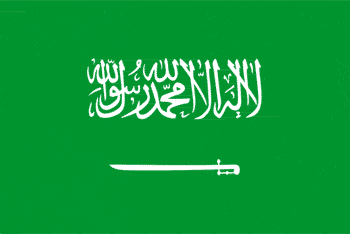Was the Bible Corrupted?
According to the Qur'an itself, biblical sources are held in highest esteem and are the yardstick of veracity by which any other message is measured. "But if thou art in doubt (kunta) as to that which we have revealed to thee, ask those who read the Book before thee. Certainly the Truth has come to thee from thy Lord, so be not thou of the doubters" (Surah 10:94).
It is clear that the above verse was directed at Islam's prophet, for the verb is in the masculine singular form kunta (you are), instead of its plural form kuntum. However, if we use the biblical source as a yardstick to measure the Qur'anic scriptures, then simply put, the Qur'an flunks the acid test of veracity since it rejects the fundamental tenets of Christianity, such as the Trinity, the inerrancy of the biblical Scriptures, the deity of Christ, His death on the cross, and His subsequent resurrection.
In comparing the Qur'an and the Bible concerning inerrancy, we will consider the following:
1. The Qur'an contradicts the Bible concerning fundamental issues. Since they cannot both be right, one of them must be in error.
2. The Qur'an claims that the Bible is the barometer of truth.
3. Therefore, the Qur'an must be in error.
1. The Qur'an contradicts the Bible concerning fundamental issues. Since they can't both be right, one must be in error:
a. Regarding the identity of Jesus, the Qur'an says, "They indeed disbelieve who say: ‘Surely, Allah - He is the Messiah.'" (Surah 5:17, see also 5:72)
b. Regarding the crucifixion of Jesus, the Qur'an says, "They
killed him (Jesus) not, nor did they cause his death on the cross, but he was
made to appear to them as such." (Surah 4:157)
2. The Qur'an claims that the Bible is the barometer of truth.
a. "But if you are in doubt as to what We have revealed to you, ask those who read the Book [Bible before you." (Surah 10.94a)
b. "And that which We have revealed to you of the Book [Bible], that is the truth verifying that which is before it; most surely with respect to His servants Allah is Aware, Seeing." (Surah 35.31)
c. "Say: Who revealed the Book which Moses brought, a light and a guidance to men?" (Surah 6:91b)
d. "And do not dispute with the followers of the Book except
by what is best, except those of them who act unjustly, and say: We believe in
that which has been revealed to us and revealed to you, and our God and your
God is One, and to Him do we submit." (Surah 29:46)
3. Therefore, the Qur'an must be in error.
Since the Qur'an and the Bible disagree on fundamental issues, they cannot both be right. Logic demands that one has to be in error. Muslims claim that since the Bible does not match the Qur'an, the Bible must have been corrupted. However, since the Qur'an instructs us that the Bible is the barometer of truth, this leads us to the inevitable conclusion that whenever the Bible and the Qur'an disagree, the Qur'an must be in error. In other words, the Qur'an is in error concerning a myriad of theological issues such as the Holy Trinity, the identity of Jesus as the Son of God, the sacrificial atonement of Christ, the inerrancy of the Bible, etc. Let us examine some clues in the following vignette to explain why the Qur'an is so vastly different from the Bible.
"A cartoon shows a line of pews and the same sentence is being passed verbally from one pew to the other:
First pew: ‘My ear kind of hurts.'
Second pew: ‘The pastor has an earache.'
Third pew: ‘The pastor got a hearing aid.'
Fourth pew: ‘The pastor is having trouble hearing.'
Fifth pew: ‘The pastor got a double earring.'
Last pew: An old lady with a cane is walking out and says, ‘That does it, I'm outta here! The pastor's got a double earring!'"
Though it is intended to be satirical, the above vignette brilliantly describes how biblical stories could be altered in the Qur'an. The main reason behind the discrepancies between the Bible and the Qur'an is that Islam's prophet had to rely on oral information from Christians and Jews concerning the Bible, because the Bible was not yet translated into the prophet's language of Arabic until approximately three hundred years after his death (AD 900). This further proves that the Qur'an lacks divine origins; otherwise, biblical stories would have been preserved unchanged. Muslims need to make up their minds concerning whether Allah's word can be altered. If it cannot be altered, then the Bible, which the Qur'an claims to be the word of God, could not have been altered. Muslims cannot vacillate on their beliefs concerning this issue to suit their purposes. Therefore, if the Bible was corrupted, Muslims must be open to the possibility that the Qur'an itself was corrupted.
Is Islam a Religion of Peace?
In Islam, the world is traditionally divided into two camps. Those are Dar Al Islam (literally house of Islam or submission) meaning House of Peace, and Dar Al Harb (House of War). Although the exact definitions of these terms vary widely, a traditional definition is as follows: Countries that are under Muslim rule are grouped in the House of Peace, whereas countries that are not are grouped under House of War. Muslim fundamentalists have Islamic world domination in mind. They are on a jihad until the whole world confesses the Islamic creed which is featured on the Saudi Arabian flag. The Wahabis are the dominant Islamic sect in Saudi Arabia. Their war cry was: "kill the infidels." The national flag of Saudi Arabia, the religious center of Islam has the words, "La Illaha Illa Allah" (There is no god but Allah). Beneath those words, is the key to making that happen-a sword.


